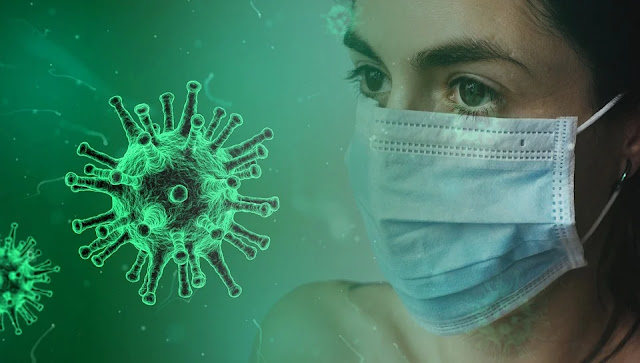SOME Q&A'S ABOUT CORONAVIRUS
 |
| Source: Pixabay |
1.What is the coronavirus disease?
A novel coronavirus is a new strain of coronavirus that has not been previously identified in humans.Coronaviruses (CoV) are a large family of viruses transmitting between animals and people that cause illness ranging from the common cold to more severe diseases such as Middle East respiratory syndrome (MERS-CoV) and severe acute respiratory syndrome (SARS-CoV).
Reports suggest that 2019-nCoV, COVID19, infection can cause mild to severe disease and be fatal in some. Common observed symptoms include fever, cough, shortness of breath, sore throat, and breathing difficulties. In more severe cases, infection can cause pneumonia or severe acute respiratory syndrome, particularly in those with other chronic underlying health conditions, and even death.
2.What happens when you get the coronavirus disease?
People with COVID-19 generally develop signs and symptoms, including mild respiratory symptoms and fever, on an average of 5-6 days after infection (mean incubation period 5-6 days, range 1-14 days). Most people infected with COVID-19 virus have mild disease and recover.
What is the recovery time for the coronavirus disease?
Using available preliminary data, the median time from onset to clinical recovery for mild cases is approximately 2 weeks and is 3-6 weeks for patients with severe or critical disease.
3. Is the coronavirus disease the same as SARS?
No. The virus that causes COVID-19 and the one that caused the outbreak of Severe Acute Respiratory Syndrome (SARS) in 2003 are related to each other genetically, but the diseases they cause are quite different.
4. Who is most at risk for the coronavirus disease?
People of all ages can be infected by the new coronavirus (2019-nCoV). Older people, and people with pre-existing medical conditions (such as asthma, diabetes, heart disease) appear to be more vulnerable to becoming severely ill with the virus.
WHO advises people of all ages to take steps to protect themselves from the virus, for example by following good hand hygiene and good respiratory hygiene.
5. Is coughing a symptom of the coronavirus disease?
The most common symptoms of COVID-19 are fever, tiredness, and dry cough. Some patients may have aches and pains, nasal congestion, runny nose, sore throat or diarrhea. These symptoms are usually mild and begin gradually.
6. Is the coronavirus disease new?
Coronavirus disease (COVID-19) is a new strain that was discovered in 2019 and has not been previously identified in humans.
7. Is there a vaccine for the coronavirus disease?
When a disease is new, there is no vaccine until one is developed. It can take a number of years for a new vaccine to be developed
8. What are the symptoms of the coronavirus disease?
The most common symptoms are fever, cough, shortness of breath, and breathing difficulties. In more severe cases infection can cause pneumonia, severe acute respiratory syndrome, and even death. The period within which the symptoms would appear is 2-14 days.
9. Can women with COVID-19 breastfeed?
Yes. Women with COVID-19 can breastfeed if they wish to do so. They should:
- Practice respiratory hygiene during feeding, wearing a mask where available;
- Wash hands before and after touching the baby;
- Routinely clean and disinfect surfaces they have touched.
10. What is the treatment for the coronavirus disease?
There is no specific treatment for disease caused by a novel coronavirus. However, many of the symptoms can be treated and therefore treatment based on the patient's clinical condition.
11. Can coronavirus spread through mosquito bite?
To date there has been no information nor evidence to suggest that the new coronavirus could be transmitted by mosquitoes. The new coronavirus is a respiratory virus which spreads primarily through droplets generated when an infected person coughs or sneezes, or through droplets of saliva or discharge from the nose. To protect yourself, clean your hands frequently with an alcohol-based hand rub or wash them with soap and water. Also, avoid close contact with anyone who is coughing and sneezing.
This QA is for informational purposes only!!!
0 Comments